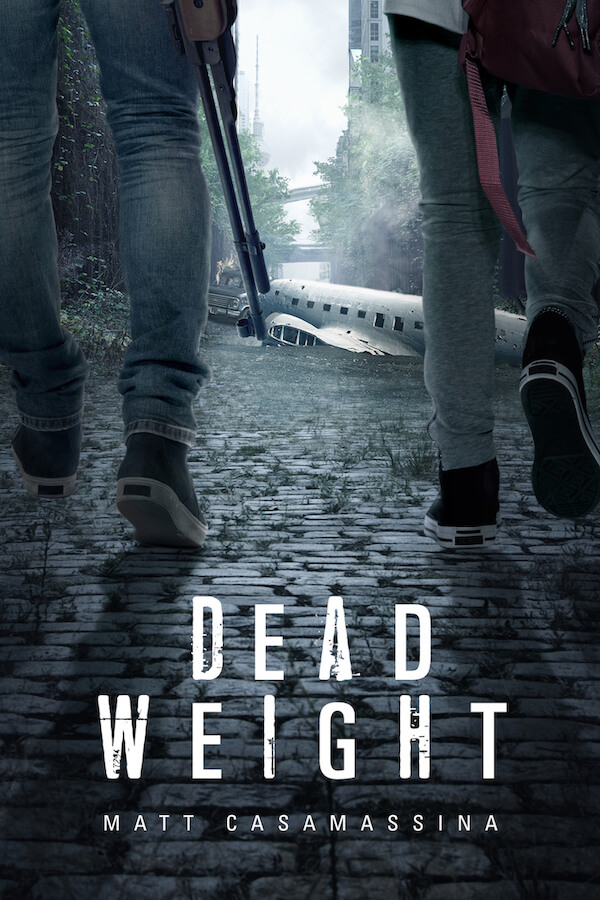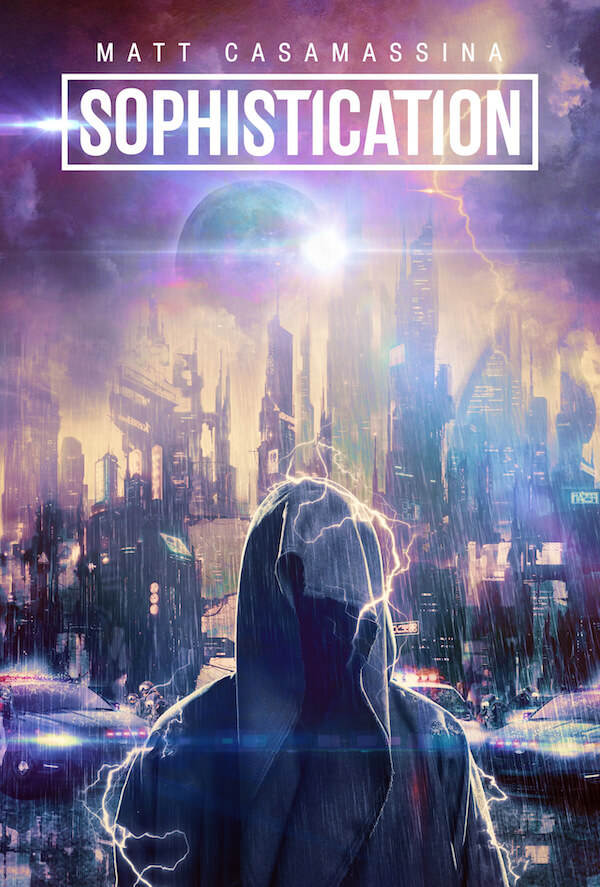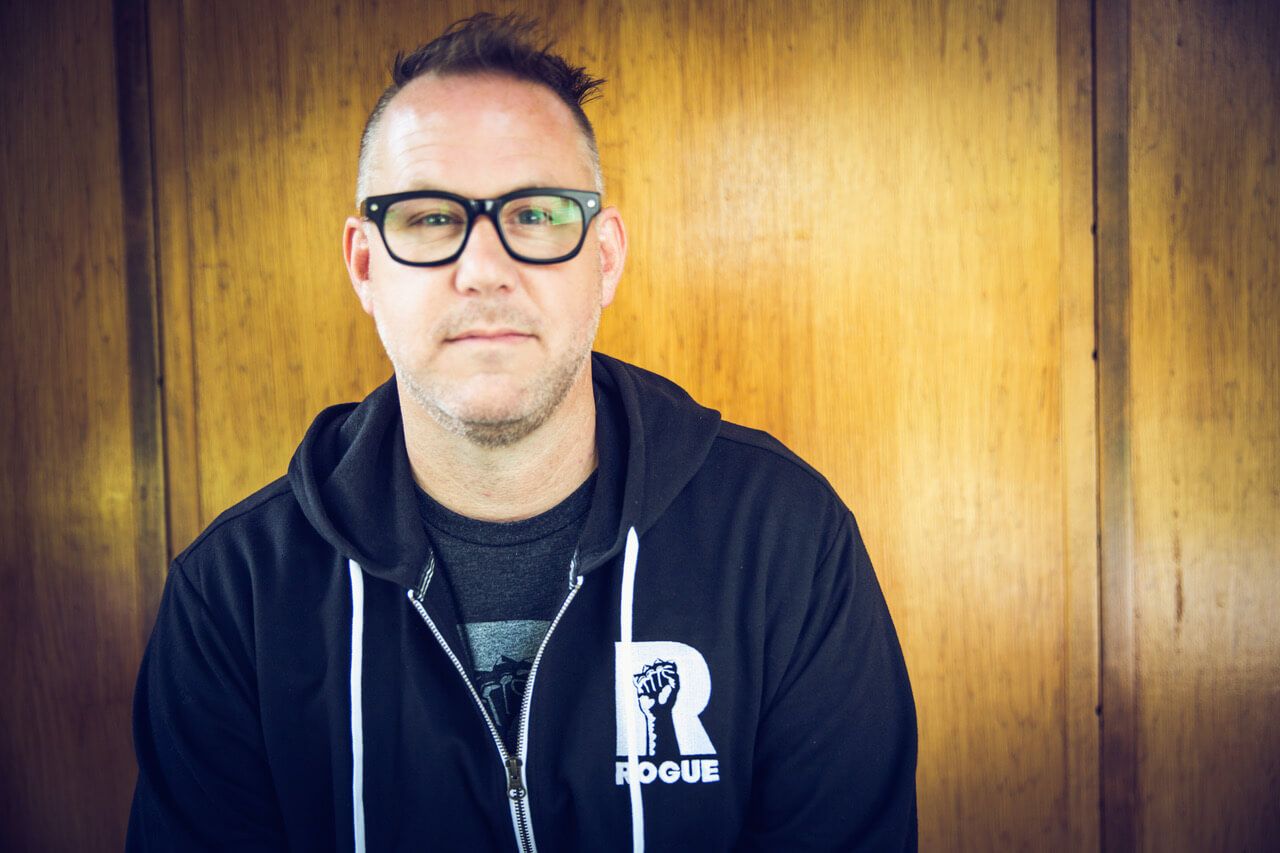Strategist in the games business by day, science fiction author by night – Matt Casamassina is a co-founder of the legendary IGN.com, led the App Store games editorial team for almost a decade, and in addition to all that, helped found a games company. He has also published two novels and is married with three kids and two dogs. In our interview, Matt talks about his career, the difficulty of finding time for writing, and the unexpected link between games and novels.
Please tell us something about you and your professional background.
I’m a writer, nerd, gamer. Big fan of science fiction, horror, and general fiction. Was raised on Stephen King and Chuck Palahniuk. Fave video game of all-time is Metroid Prime. Been in the journalistic and now straight video game business for wayyy too long, but still loving every minute of it.
What role does writing play in your life?
Writing is how I express myself creatively. I’ve had two books published and one more set to come out in the next couple of months. I try to work on my latest novel whenever I have a spare moment, which is usually in the late evenings these days. And I run a local writing group dedicated to science-fiction where a handful of us meet up weekly, read our latest chapters, and offer constructive feedback.
You’re a co-founder of IGN, a website about gaming and entertainment. How did you get there, and what was your role?
Lots of hard work that wasn’t work at all because we all loved it.
Yeah, I’m a co-founder of IGN.com, which I’m quite proud of. That dates me. We started into that endeavor all the way back in 1996 with sites like N64.com, and it was a hell of a lot of fun. A small group of us would come in late, work our asses off into the middle of the night, and try to connect with readers. Total frat house environment back then. Somehow we did something right, and over the years, the audience grew from hundreds of thousands to millions and then tens of millions. IGN today is an internet behemoth with something like sixty million users monthly. I wore various roles while I was there, from editor-in-chief and then later to the website’s only editor-at-large.
What was it like at IGN during your time there?
Crazy. Stupid. Ridiculously fun. Lots of hard work that wasn’t work at all because we all loved it. We slept under our desks so we could be the first to bring any time-critical news out of Japan to our readership. We all hung out together after work. Nobody had girlfriends because we were too obsessed with the job of video game coverage and also way too nerdy.

As a young man, was it your dream to earn money writing about video games?
Nope, not really. I was much more interested in writing fiction. I wrote a lot of shit fiction in my teenage years. Short stories intended to shock, most of which lacked any endings or coherent narrative thread. As flowery as possible because I didn’t know any better. Real garbage. But at the same time, I was a huge gamer. Read every magazine out there. Was very computer and baby internet savvy. I started to send emails to various magazines about job openings, and one of them eventually hit. Rest is history.
What happened after you left IGN?
Yeah, I left IGN to build Apple’s App Store games editorial team and then ran it for nearly a decade. People who work for Apple don’t ever speak about their time at Apple, or the Apple Snipers might get them, but I’ll just say that I loved my time there, I’m still a big believer in the App Store as a product, and the team is incredible. But nowadays I’m a co-founder of Rogue Games, which is a new kind of games company. We’re making ridiculously awesome games for all platforms, from Apple Arcade to Switch, PS4, Xbox One and PC. The difference for me is that my role is very business-focused now, which means that fiction writing really has become my exclusive creative outlet.
You’ve published two novels; the third one will be available soon. How do you manage to carve out time for writing?
Not easily. I should mention that I work full time and am married with three kids and two dogs. Time, therefore, is a rare, cherished commodity for me. Also, I’m the worst kind of procrastinator. I will push work on my latest novel aside to watch the new season of The Expanse, or because Joker came out, or maybe to hit the gym, or to jump back into No Man’s Sky. Give me a reason, and I accept, basically. I do my writing in powerful bursts. Three weeks of writing every night from about 10 pm to 2 am, usually with a cold-brew coffee and some ambient soundtrack to keep me company. And then I fall off hard — a full face-plant — into the realm of general no-progress fuckery for two months. Then something sets me off again. A narrative spark that occurs to me in the shower, or a solution to a character obstacle that snaps into place while I’m out for a walk, and it’s off to the races again.
Time is a rare, cherished commodity for me.
The other thing is deadlines. If you can figure out a way to tether them to something real and tangible, they are your friend. Both of my first two books were nearly picked up by major publishers, and the last 40,000 words or so of each came in a matter of weeks because they set deadlines for me. When I’m backed into a corner, my progress dramatically improves.
Please tell us more about your books. What are they about?
Dead Weight is my debut novel. It’s about a naive teenager named Zephyr who wakes up from a camping trip one morning to find everybody in his hometown has vanished. What’s stranger is that they’ve all left behind their clothes, jewelry, even dental fillings. And as he begins to investigate the mystery, he soon discovers that it’s far more widespread than he feared. You could call it a dystopian novel. Some agents have labeled it young adult, but that doesn’t feel right to me because it is quite a brutal, ugly book at times.

Sophistication is my second book. I don’t even know how to describe it, which is problematic given that I’m a writer and I wrote it. Maybe a near-future blend of science-fiction and thriller with all sorts of insane shit surrounding the entire story? Unlike Dead Weight, which was written in the past tense from a singular third-person viewpoint, Sophistication follows at least six primary characters and in the present tense. It’s also a bit of a commentary on the state of politics, among other things.
Both books have been incredibly well reviewed by Kirkus, Publisher’s Weekly, and other outlets, so I’m feeling very fortunate.
Where do you get the inspiration for your plots?
Dead Weight is definitely inspired by all the post-apocalyptic fiction I read growing up. Stephen King’s The Stand is an obvious role model. And Sophistication came to me after I saw in the news that a young girl was accidentally killed by stray bullets in some gang shooting. I started to wonder what would happen if some rogue terrorist group with an unstoppable technology existed, and what might transpire if that group started to exact vigilante retribution on gangs. Everything else formed around that single idea. And the final book barely mentions gang violence. Crazy how that happens.
When did you find out that you would like to write fiction, and how difficult was it to get started?
When I’m backed into a corner, my progress dramatically improves.
I devoured fiction as a pre-teen and knew I wanted to try my hand on it, but as I noted previously, my early experiments sucked. I mean, AAA bad. Embarrassingly so. Only a little later in life, after I’d spent 15 years in journalism, did I come by the confidence, patience, and persistence to do fiction justice.
Video games and novels seem like two things that don’t quite match. Gamers, I’d figure, don’t have time to read novels, much less to write them. Is that a misconception, or are you an exception?
I think it’s a misconception. I can regale you with anecdotes about how all my gamer friends read fiction, but I’ll just point to some licenses instead. One of the biggest games in the industry, The Witcher, sprang to life in literature, not games. And many games have spawned successful series in books.
Please describe how you Ulysses to write your novels.
Actually, I exclusively use Ulysses to write all of my novels. This started back when I worked at Apple and I discovered Ulysses on iPad. Loved how seamlessly it worked between devices and also adored the dark mode-like styles. Then, when I was working on Sophistication, I started to use sheets correctly for various chapters, added more tags and markup, and it became a very powerful way to organize and classify all of my content.
What do you like about the app? What do you think is missing?
Love how lightweight and powerful it feels. How easy it is to use sheets. Love the writing goals. What I want are more options around writing goals. A daily one, for example. A countdown timer. And the gamer in me would love it if you found ways to gamify Ulysses in order to motivate writers. For example, some bonus — stickers, unique themes or fonts, whatever — to writers who return daily for a week or a month to hit all of their goals.
What other tools and productivity apps do you use, and how do they help you?
That’s it. Made up my mind a long time ago that it was just Ulysses for me. And so far, zero regrets.
To find out more about Matt and his work, visit his homepage or follow him on Twitter.
